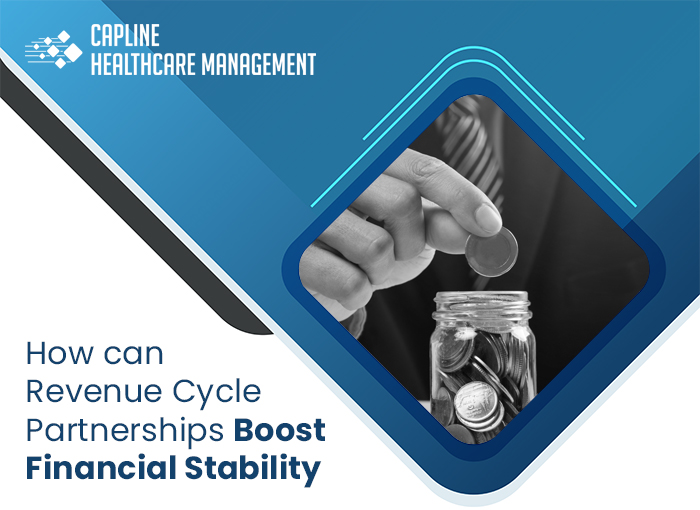How Can Revenue Cycle Partnerships Boost Financial Stability
Since the pandemic, most practices have been struggling with financial constraints that jeopardize their growth. The challenging times had to be tackled with a quick response when it came to medical revenue cycle management. Most practices must identify opportunities to reduce costs and simultaneously increase profitability quickly.
More and more practices have seriously considered revenue cycle partnerships to improve things. Practices were hesitant to outsource initially, thinking they might have to relinquish control or lose decision-making. But today, practices know what matters; They know that outsourcing partnerships are centered around transparency, and it is in the best interest of the practices to look for partners who can help accelerate their growth.
Your RCM partner can be your team.
When working with a revenue cycle management healthcare company, it becomes paramount for practices to consider the new extension as a part of their team. In another way, the partner becomes a supportive group working to optimize the internal workflows.
Outsourcing the RCM cycle in medical billing is focused on helping practices deliver quality care, decrease errors and delays, and make the billing process seamless. If a partnership is planned carefully with a firm that is trusted, every practice can have three significant advantages that they can bank on.
1. Dedicated specialization to enhance performance.
Instead of hiring one or two employees to handle everything from coding to collections, imagine having access to a much larger revenue cycle staff with the expertise, established processes, and technology to deliver financial results and a better patient experience.
Revenue partners have specialists who can cover each revenue cycle requirement (coding, value-based care adherence, payer contracting, etc.) and have the skills to chase down every dollar owed. They can also provide technology that enables automated workflows and seamless hand-offs between digital assets and employees.
2. Flexibility to cut down costs
Fixed costs such as salary and benefit expenses are significant financial burdens, particularly in the current environment where healthcare providers face unprecedented increases in operational and labor costs.
There are no fixed costs to manage with an RCM partnership; providers pay a small fee per patient claim, and total RCM costs rise or fall based on the number of claims filed. Because the organization does not have to incur the high costs associated with running operations in-house, this variable cost structure protects practices when unexpected changes occur (e.g., increased supply expenses, decreased patient volume, etc.).
Simply put, when volume falls, so do the fees associated with the RCM partnership, which helps to protect bottom-line performance.
3. Scale to better growth
Gaining access to scale is a crucial strength of an RCM partnership. Practices can standardize numerous revenue cycle tasks with the assistance of a partner and the technology, services, and expertise they bring.
Moreover, having an experienced team providing constant support and bench strength is critical, especially when practices are experiencing unprecedented change or attention must be diverted to more pressing issues.
Working with a partner who could ensure that critical operations like claims management and patient collections continued to run smoothly as these two organizations merged allowed the practice to focus on its expansion without jeopardizing day-to-day operations, financial outcomes, or patient satisfaction.
RCM partnership that matters
Healthcare providers urgently require skilled partners who can bring the revenue cycle management in medical billing up to speed and maximize the financial potential for long-term survival.
Capline Healthcare Management is well-known for handling all RCM functions efficiently, achieving results as quickly as possible, and freeing up valuable time to focus on how to best move their business forward.




